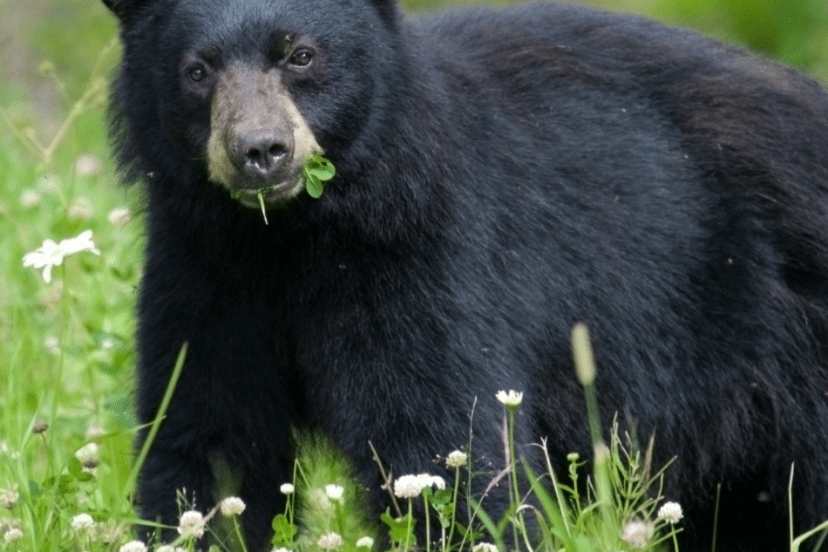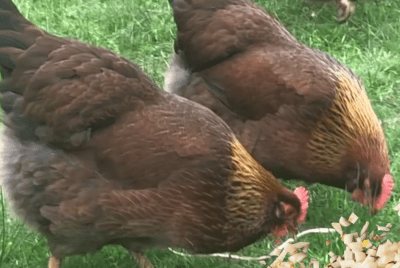Bears And Chickens – How To Prevent Encounters
It’s crucial to ensure that your chicken coop is well-protected against potential bear encounters. These powerful creatures can cause significant damage and pose a danger to your flock. By taking preventative measures and making your coop bear-proof, you can create a safer environment for your chickens. In this blog post, we’ll discuss tips and strategies to help you protect your coop from bear intrusions.

Key Takeaways:
1.Secure your coop: Ensure your coop is bear-proof by using strong materials such as metal or hard plastic.
2.Remove attractants: Keep food sources such as grains and seeds securely stored to avoid drawing bears to your coop.
3.Implement deterrents: Use motion sensor lights or noise-making devices to scare off bears from approaching your coop.
4.Maintain cleanliness: Regularly clean up spilled food and debris around your coop to minimize the chances of attracting bears.
5.Stay informed: Stay updated on bear activity in your area and learn about effective ways to prevent bear encounters to keep your coop safe.
I may receive compensation for this product if it is purchased, but there is no extra cost to you.
Bears and Chickens – Fortifying Your Coop
Choosing the Right Materials
While fortifying your coop, choosing the right materials is crucial. Opt for sturdy and durable options that can withstand weather conditions and potential bear encounters. Make sure the materials are predator-proof to ensure the safety of your flock.
Secure Construction Tips
Fortifying your coop with secure construction tips is vital in keeping bears at bay.
Implementing reinforced locks and latches, as well as sturdy gates and fences, can prevent unauthorized entry.
By using strong hardware cloth and securely fastening all openings, you can minimize the risk of a bear breaking in.

- Reinforced locks and latches
- Sturdy gates and fences
- Securely fasten all openings
To further enhance security, consider installing motion sensor lights around the coop perimeter.
These lights can startle bears and deter them from approaching.
Be mindful of, bears are opportunistic creatures and will be less likely to target your coop if they perceive it as a difficult target.
Bear Deterrents and Repellents
Natural Deterrents
It’s imperative to consider natural deterrents to keep bears away from your coop. Planting strong-smelling herbs like lavender, mint, or sage around the perimeter can help deter bears as they dislike strong scents. Additionally, keeping the coop area clean of any food scraps or waste will also discourage bears from coming near your property.
Technology-based Repellents
To enhance your bear deterrent strategy, consider using technology-based repellents. Installing motion-activated lights and alarms around the coop can startle bears and deter them from approaching. You can also invest in electric fencing, which delivers a mild shock to deter bears without causing harm.
Repellents: While natural deterrents are effective, technology-based repellents offer an extra layer of protection to ensure the safety of your coop and birds. By combining both natural and technological solutions, you can significantly reduce the risk of bear encounters on your property.

Safe Practices Around Your Coop
Your coop is a hub of activity and a vital place for your feathered friends. To keep it safe from potential bear encounters, here are some practices to follow.
Proper Food Storage
With bears having an acute sense of smell, it is crucial to store all poultry feed securely. Use sealed containers and never leave any food outside the coop overnight. This will prevent attracting bears to your property, keeping both your coop and the bears safe.
Educating Your Family and Neighbors
To ensure everyone in your household understands the importance of bear safety, educate them on the risks of leaving food scraps or pet food outside. By spreading awareness, you can create a bear-safe environment and prevent potential conflicts.
This includes discussing the consequences of leaving attractants around the coop, such as uncovered garbage or bird feeders. By working together, you can protect your coop and the bears in your area from dangerous encounters.
When Bears Pay a Visit
Once again, bears have paid a visit to your coop. It’s important to know how to handle these situations to keep both your chickens and yourself safe.
Emergency Procedures
When encountering a bear at your coop, it’s crucial to remain calm and avoid startling the bear. Slowly back away without turning your back on the bear. If the bear approaches, make yourself appear larger by raising your arms and making loud noises to scare it away. If the bear attacks, use bear spray if you have it and play dead if necessary.
Reporting and Seeking Assistance
When a bear pays a visit to your coop, it’s important to report the incident to local wildlife authorities. They can provide guidance on preventing future encounters and take necessary steps to ensure the safety of both wildlife and your flock. Seeking assistance from professionals can help in assessing any damage caused and implementing preventative measures to deter bears from returning.

To prevent future bear encounters, it’s important to secure your coop with heavy-duty fencing, motion-sensor lights, and bear-proof food storage containers.
By taking these precautions, you can minimize the risk of bears visiting your coop and ensure the safety of your chickens.
Conclusion on Bears and Chickens
To wrap up, it’s important to take preventative measures to avoid bear encounters around your coop.
By securing your coop with electric fencing, keeping feed stored in bear-proof containers, and eliminating any enticing smells, you can reduce the chances of bears visiting your property.
Bear in mind, bears are powerful animals and should be respected from a safe distance.
By following these tips, you can create a safer environment for both your chickens and the local wildlife.
FAQ’s about Bears and Chickens
Q: Why is it important to prevent bear encounters in my coop?
A: Bears can cause harm to both your coop and your chickens. By taking preventative measures, you can protect your property and your flock.
Q: What attracts bears to chicken coops?
A: Bears are attracted to chicken coops because of the smell of food, such as chicken feed and eggs. Proper storage and disposal of these items can help prevent bear encounters.
Q: How can I bear-proof my chicken coop?
A: You can bear-proof your chicken coop by installing electric fencing, secure latches on doors, and motion-activated lights. These measures can deter bears from entering your coop.
Q: What should I do if I encounter a bear near my coop?
A: Remain calm and do not approach the bear. Make loud noises to scare it away, such as banging pots and pans or using an air horn. Do not run away, as this may trigger the bear’s instinct to chase.
Q: Are there any plants that can help repel bears from my coop?
A: Yes, planting strong-smelling herbs like mint, lavender, and garlic around your coop can help deter bears. Bears have a strong sense of smell and may be deterred by these scents.
Protecting Chickens From Aerial Predators
Camomile Keeps Laying Hens Calm
7 Essentials For Backyard Chicken Coops
5 Things you Must know about Silkie Chickens











